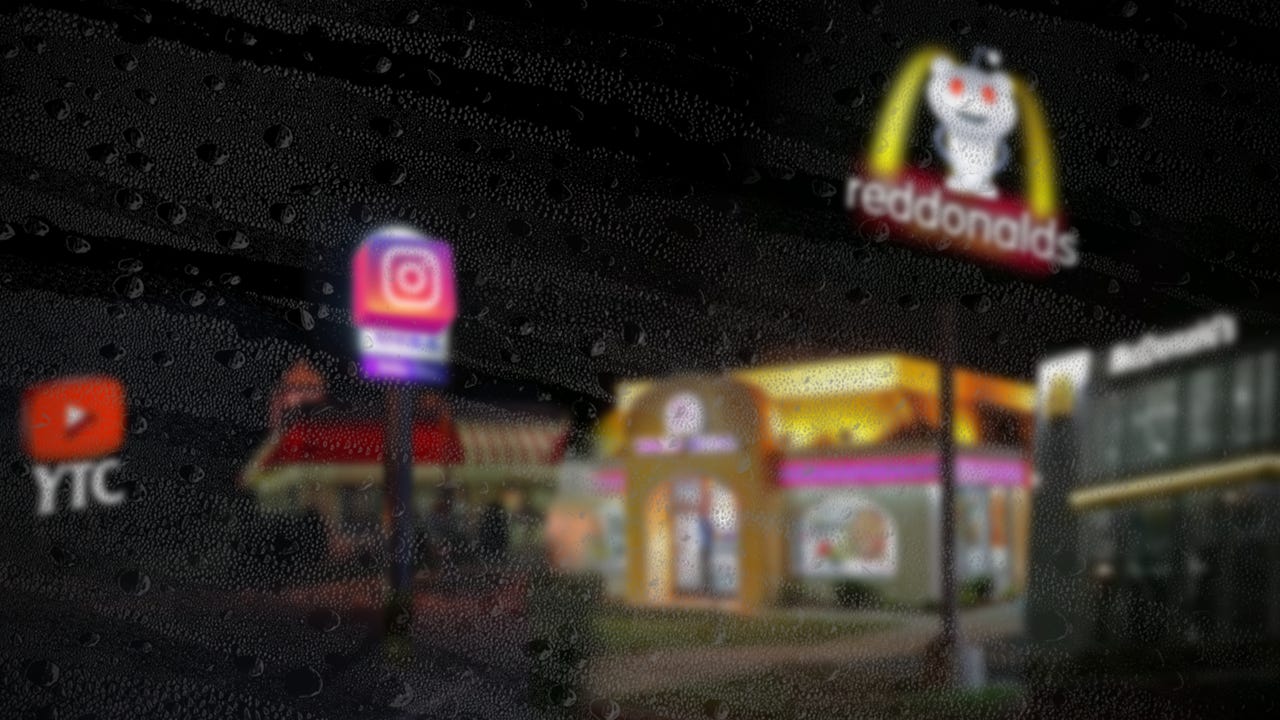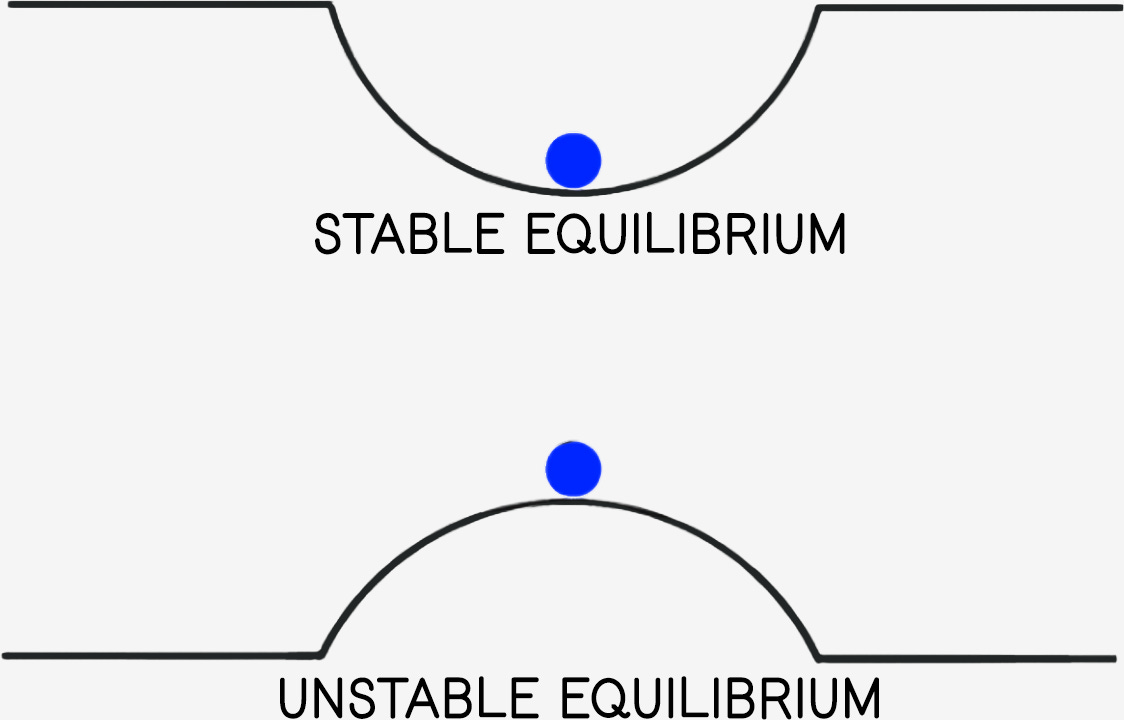As with our last offering on Monday, this piece by Justin (
) is borderline ‘too long for email’ so I’m not gonna pontificate here and tip us over the edge. This essay speaks for itself and Justin’s archive is absolutely essential for anyone who is burned out by too much internet and wants to find a better way.Enjoy.
“To be prepared against surprise is to be trained. To be prepared for surprise is to be educated.” ― James Carse
When we say “the Internet” is toxic, we usually just mean social media. And not even social media per-se, but corporate social media. For-profit social media. The thing frustrating and distressing about “the Internet” isn’t the weather forecasts, maps, how-to vids, encyclopedias or movie showtimes. It’s all the crap that tries to interrupt you on your way to getting to the information you care about. When we say “the internet is toxic” what we are really saying is that “profit-seeking algorithms have figured out that showing humans mildly upsetting1 stuff is a great way to derail whatever they were doing and maybe get them to send you money”.
The Internet has become a near-indispensable tool of modern life. But being perpetually connected exposes us to all sorts of interruptions that make us anxious and overwhelm our poor neolithic meat brains. It’s tempting to think that maybe it would be better to dump the whole stinking system and take the consequences. What is the price for peace of mind?
Tourist traps on the information superhighway
“Deep unfocus” is what I call the state of mind after boredom. Like if boredom is the the itchy, uncomfortable, stressful climb up a mountain, “deep unfocus” is feeling at the top. It’s a creative, playful and healing place, where perspective is broad, and your mind is open to possibility. You’ve been there before, but it’s probably been a while. Remember being a kid and watching those raindrops “race” each other on the car window? Be bored long enough and even water droplets get kinda exciting!
Being deeply unfocused is what engineers would call being in an unstable equilibrium. An unstable equilibrium is like balancing on the tip of a mountain peak. A small push at the right time can knock you off-balance and you’ll tumble to the bottom. For example, when your parents’ car passes a McDonald’s, the drama of the raindrop race suddenly evaporates away as your focus shifts to those always-tempting golden arches. You’ve been nudged off the mountain. That’s what McDonald’s was going for- by the way. It’s what all those (often famously underwhelming) roadside attractions are going for. They don’t need to be good, they just need to be more attention-grabby than a raindrop race.
The information superhighway has similar tourist traps. Back when social media sites were new (and still called “social networks”) they weren’t why anyone was using the Web. It was a distracting novelty you checked while you were already online doing something else. The fact that anyone developed internet-based friendships is a bug, not a feature, of social media. It was never meant to actually replace being social. If you want evidence, please take note that “social” media is hardly even social anymore! It’s all been hyper-optimized to the point where the algorithms are just throwing up anything that will get you to pull over at the next exit and spend some money. In 2010, social media was essentially just “pictures of your friends”. Nowadays TikTok is full of weird “stimming” content that isn’t actually about anything, but is tapping into some primal part of our brains that makes it hard to look away. It’s why every corporate app is turning into TikTok and adding short videos. Instagram is TikTok. Spotify is TikTok. Even the Amazon app has a short-form video feed now.
Resisting distractions uses willpower, a finite resource. And when we carry infinite distractions in our pockets, well, do the math2. When we aren’t allowed a chance to be bored, we aren’t able to get truly creative. When we can’t stand at the top of the mountain and examine our lives from a broad and unfocused perspective, we’ll quite literally never feel like we’re “on top of things”. When we’re always distracted we are more anxious, insecure, fearful, and worrisome. And corporations know that when we’re more anxious, insecure, fearful, and worrisomewe buy more stuff.
Of course, spending money doesn’t actually make you less anxious, insecure, fearful, and worrisome. But try telling that to someone who’s feeling anxious, insecure, fearful or worrisome. Profit-prioritizing algorithms have figured out that the shortest path to getting us to open our wallets is to keep us off that mountain peak. And the most cost-effective way to keep someone off balance, is to make them feel kinda bad. So what can you, an individual, do about it? Lets consider the options:
Option A: Remove Yourself
“It would be better to dump the whole stinking system and take the consequences”
― Theodore J. Kaczynski, a happy and well-adjusted person.
When we’re distracted and worried, we don’t think rationally. And when we’re distracted and worried because of technology, there’s a temptation to want to throw it all away and move to the woods and become a hermit. Surely there, in isolation from all the things causing us stress, we will find peace, right?
There’s actually a famous story of someone who despised the intrusions of modern technology so much that they deleted all their group chats and actually did move to the wilderness. This person looked at all the trappings of society like running water, telephones, andStay Grounded.online and decided the price of participation was not worth the hassle.
And you know what? It didn’t work. When Ted Kaczynski (better known as the Unabomer) went into a self-imposed isolation in rural Montana, it not only didn’t make him any happier, but he failed to escape the thing he was running from. According to Ted, the event that made him “snap” was when a road was put in through a previously “untouched” scenic vista:
“It's kind of rolling country, not flat, and when you get to the edge of it you find these ravines that cut very steeply in to cliff-like drop-offs and there was even a waterfall there. It was about a two days' hike from my cabin. That was the best spot until the summer of 1983. That summer there were too many people around my cabin so I decided I needed some peace. I went back to the plateau and when I got there I found they had put a road right through the middle of it ... You just can't imagine how upset I was. It was from that point on I decided that, rather than trying to acquire further wilderness skills, I would work on getting back at the system. Revenge.”
For grounded and empathetic people, the appearance of a road, no matter how unsightly, would never inspire them to murder innocents. And by no means do I wish to paint Ted as a victim, but it’s hard not to read the above account without feeling a twinge of sympathy. It would make any of us frustrated if a previously private and serene area of our lives was suddenly intruded upon by unfeeling machinations of technological capitalism.
Buuut I’m not here to defend capitalism, I’m here to defend technology. Ted isolated himself in an attempt to escape the intrusive parts of technological society. But he isolated himself from all of its benefits too, like maybe a telephone he could’ve used to set up a therapy appointment. The story of the Unabomer is an extreme example, but it illustrates a truth about escapist thinking: it is a fantasy, no matter how far into the woods you go. Trying to participate in culture and society without the Internet these days is even less possible because well, that’s where a lot of it is.
Option B: Change Society
“Closing your eyes isn't going to change anything. Nothing's going to disappear just because you can't see what's going on. In fact, things will even be worse the next time you open your eyes. That's the kind of world we live in. Keep your eyes wide open. Only a coward closes his eyes. Closing your eyes and plugging up your ears won't make time stand still.” ― Haruki Murakami, “Kafka on the Shore”
The story of the Unabomer ultimately isn’t one of “a visionary freedom fighter who awakened society to the superiority of hunter-gathererism”; it’s a much smaller and sadder story of someone who’s lifetime contribution to the universe was making the whole thing just a little bit worse.
Ted decided that if he couldn’t escape technological society, the next best thing was to destroy it. The tools he used were bombs and suffering. This new approach obviously didn’t work either, and tl;dr, Ted is in jail, the road that upset him so much is still cutting through the ravine, and Instagram’s algorithm figured out that it can get us to click on more ads by showing us photos of our friends looking skinny while somehow affording to go on vacation again.
The lesson here is not “the Unabomer was correct and just didn’t try hard enough”. I’m pretty sure there’s no magic amount of suffering that suddenly gives rise to utopia. The lesson is to have realistic expectations both about society and your ability to influence it. There’s an aphorism Mr. Kaczynski ignored that goes “perfect is the enemy of the good”. His unwillingness to distinguish between babies and bathwater meant that —kinda like arguing on Twitter— his efforts actually worked against his stated goals of “personal freedom” (as evidenced by the eight life sentences he is serving)3.
The technological utopians say that having a society where technology works to ameliorate drudgery means that humans can focus their focusers on the arts and the elevation of mankind’s collective spirit. But despite all our tech, that’s also not what we have4. A future where everyone is free to pursue their passions is not going to magically arrive overnight. The frustrating thing about the Internet is that for all its issues, we can tangiblyseeand feelvery real benefits. There’s the aforementioned stuff like GPS and movie showtimes, but there’s also what I consider the Internet’s greatest feature: it’s ability to connect all sorts of cultures and ideas. Like- TikTok sucks but it also gave the world the Mufasa dance5:
Doesn’t it just suck that we can’t have the good stuff without having to constantly fight for it? Technology is supposed to relieve tedium, can’t we just let it?
Option C: Don’t be fearful and just roll with it
“The worst thing that could possibly happen to anybody would be to not be used for anything by anybody.” — Kurt Vonnegut, Sirens of Titan
“So wait- Justin, are you saying that if we can’t escape it or change society, we should just… put up with all the distracting garbage? Buy all the crappy stuff in our Instagram ads and dress like our favorite influencers because it’s easier?”
What I’m saying is that distracting garbage is a part of life. Distracting garbage, at times, can even be joyous. The McDonald’s food that evaporated your raindrop-race is objectively unhealthy, but stopping there for dinner on your family’s annual camping trip won’t hurt much, and the experience of a shared indulgence is one of life’s great bonding opportunities. At a certain point the mental work it takes to resist indulgences outweighs the mental benefit you get from resisting. So laugh at some memes, sez I. Get frustrated at a video game boss. Get way too emotionally invested in some shitty YouTube drama if that’s your vibe. We get four score on this planet if we’re lucky, and most of that time is crummy work, I see no justifiable reason to go out of one’s way making more work for ourselves by avoiding fun.
The problem we are all facing now in the 20s, is that digital technology forces a lot of distracting garbage on us. It’s being squeezed into increasingly private corners of our lives and it's also getting smarter. Look at all this “AI” stuff coming out and ask who is this for and what does it actually do? It certainly doesn’t tell the truth, or understand anything. It doesn’t make art6. What is it for?The only use case I’ve heard is that “AI” is for generating online distractions more cheaply and easier than what’s available now.
A thing about deeply-unfocused raindrop-race-style experiences is that they can't be forced, they have to happen. The emotion of boredom represents an absence of distraction. You cannot will yourself to be bored7. And because of digital distractions we are offered increasingly fewer opportunities to zone out and experience deep unfocus, which means fewer opportunities to examine our own lives and find balance.
I have bad news: I see no evidence that achieving a stable equilibrium with digital technology is possible. I get the impression that no matter what you do, someone or something wanting your money or attention will inevitably come along to push you off-balance. Even if you isolate yourself in the (literal or figurative) woods, it can still reach you, and when it does you’ll be even less prepared to handle it. But just because a stable equilibrium is impossible it doesn’t mean we can’t achieve an unstable one. An “unstable equilibrium” is like the scenario described above at the top of the mountain. It’s like standing on one leg. You’re balanced, but you can’t just relax or you’ll fall.
✔ Option D: All of the Above
“Vigilance, Mister Worf, that is the price we have to continually pay.” — Jean-Luc Picard
One of the best episodes of Star Trek The Next Generation is called “The Drumhead”. It’s a story about resisting our natural inclinations towards racism and tribalism. There’s a line of dialogue at the end that I think about a lot. It’s pasted above, but here’s the whole scene if you want to see for yourself:
We can consider not doing racism as a kind of “social technology” that enables society to enjoy things like remixes, fusion cuisine and fewer war orphans. “The Drumhead” is a story about bigotry as a stable equilibrium. The notion is that bigotry is what happens when you stop taking active measures to find balance.
Heck- democracy too is an unstable equilibrium. Democracy is by definition a constant adjustment. There is no “final version” of democracy. Part of the appeal of authoritarian rule is that it’s simple. It’s less work (politically speaking) when your leaders are chosen for you. And nobody has to be educated or feel the weight that comes from voting on things that affect your whole community. Of course, the big bummer of authoritarian rule is that culture stagnates when nobody has control over the direction of their life8.
Democracy is a political technology that enables its peoples to grow spiritually. But it also requires constant maintenance and adjustment. And that maintenance shit is annoying! Like wasn’t it just an election year!? WTF is a “comptroller”?
What Vigilance looks like
It is important to remember this: you do not have to always participate. But as Ted Kaczynski demonstrates, total escape is impossible. Sure, you can go the nuclear route and frustrate your friends by ditching the cellphone and buying a landline (paper maps, and camera, etc.) But technological society will find you. And imagine how vulnerable you’ll be to it when a deepfaked “friend” calls and asks for money and you don’t even have caller ID or know what a bitcoin is.
The other extreme: changing everyone else’s behavior, is equally impossible. In fact I’ll go so far as to say that any political or social philosophy that begins with the phrase “If only everyone could just” is doomed to fail. If your goal is to maximize the benefits of technology and protect from the downsides, continuous vigilance is the only viable path.
The price we must pay for technological help; the price of driving directions on the fly, up-to-date encyclopedias that don’t cost a fortune, facetiming with grandma, sketchbooks with an “undo” button, mRNA vaccines, space telescopes, listening toJohn Prine’s last album while camping, screen readers for the blind, multi-user spreadsheets, Return of the Obra Dinn, HD remasters of Star Trek The Next Generation, personally witnessing what happened to George Floyd and organizing a rapid-response protest, finding a cocktail recipe minutes before your guests arrive, being reminded of your cousin’s birthday…
The price for these things (Mr Worf) is vigilance.
Caller ID, ad blockers, RSS readers, browser extensions, alternative front-ends, screen time timers, etc. are tools you can employ to turn down the pressure from the fire
hose of information, but they cannot not do the work for you of being educated. And few people (present company excepted, of course) are going to go out of their way to inform you how.
Educate yourself about the risks and benefits of different technologies, and use reliable tools and methods to prevent, detect, and remove unwanted intrusions into your life. Demand more transparency and interoperability from the developers and distributors of software, and support laws and regulations that safeguard our privacy rights. We’ll probably never “win” total control over our attention, and probably wouldn’t ever really want to anyway. But with continuous vigilance, we can maximize the advantages without compromising our dignity and freedom. We can keep our digital babies without the dirty bathwater.
Or sexy, etc.
Infinite > Finite
As of 2022 Ted’s now spent more of his finite life in prison than he did in the woods.
There is an argument to be made thanks to advancements in technology a lot more people today are able to make art and survive than say- 1000 years ago, even if most are not exactly thriving.
I just discovered that “Mufasa” is a Ghanian character played by a guy from Virginia. Pls don’t disregard my point 🤦♂️
Funny story- there’s a quote I wanted to mention here by Paul Cezanne that goes “A work of art which did not begin in emotion is not art.” I googled the quote to see if there was possibly some visual content I could embed that would help illustrate the point, and the top result was this TikTok which appears to just be some auto-generated spammy junk. What a world!
But you can create the conditions
If you’re an artist who wants to feel sad, there’s an absolutely fascinating video about some European artists who go to North Kora in an attmempt at cultural exchange. There’s a moment where a Scottish woman is speaking to some North Korean painters and realizes they are only copying, and not producing any kind of inspired work. The whole thing is a really fascinating example of what happens to culture when people are unable to express itself.













Good stuff. I think I’m with you.
Lots of food for thought!